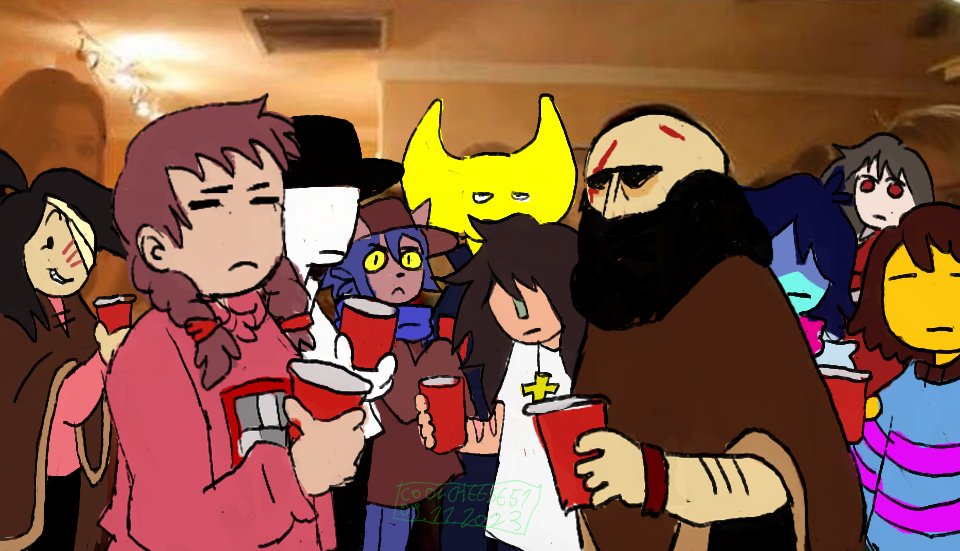I owe a lot of my creative life to the plethora of “quirky Earthbound-inspired” indie RPGs that exist on the internet. You may have heard of some; big titles include Toby Fox’s Undertale and OMOCAT’s Omori. What I love about these games and their storytelling is the strange nature of them that go against conventional storytelling and genre expectations. These games are often made in the RPG Maker game engine, and while it is incredibly accessible, making its appeal to indie developers, it is also limited in the scope of its technicality. But it is this exact restraint that allows the storytelling of these games to flourish as the developers are able to focus on the presentation and writing of these games. I want to explore a few of them here and discuss the nature of their storytelling.
LISA: The Painful by Dingaling Productions
LISA holds a special place in my heart. It was in my formative years that I stumbled upon this game and realized the potentials of storytelling. The game follows Brad Armstrong, a drug-addict martial artist who lives in the world of Olathe, a post-apocalyptic world where women have all but died out. LISA is both hilarious and strange, but it manages to balance this storytelling with moments of bizarre horror and deep introspection of its world and characters. Brad is a classic anti-hero, but it is the very act of controlling him as the player that makes you sympathize with his dichotomy of being both a victim and a perpetrator of hypermasculine trauma. The difficult decisions you will make along the way, such as choosing between the life
of a party member or your limb, is itself both a gameplay and narrative tool that puts you in the precariousness of this world and the morality of Brad. By the end of the game, you will feel destroyed.
OFF by Mortis Ghost
OFF was my gateway drug into surrealism. In this Belgian French RPG you play as The Batter who is determined to purify the world of its specters. The world is made of a cluster of zones that champion the four elements of smoke, metal, plastic, and meat. As you traverse across its surreal landscape, you can’t help but feel like something is, well, off. The storytelling here is in the atmosphere, and exploring this strange industrial world delivers its philosophies on creation and destruction. Playing as The Batter makes you question what sort of mission you are carrying out. As you return to the zones you have purified, you will find them desolate and monochrome. There is also a hint of a metanarrative, as the game tells you up front that you the player are puppeting The Batter, but it never feels on the nose. By the end of the game, you will question your existence.
Hylics 2 by Mason Lindroth
In a similar vein, Hylics 2 was my introduction to psychedelia. Indeed, you may as well call this Acid Trip: The Game, but it is a lot more than that. The game oozes with style, from the clay models, vibrant color palette, and tunes by Chuck Salamone you can’t help but jam to. The overarching story itself is on the more simple side; you play as Wayne who is on a mission to stop Gibby’s resurrection and reign. But it is through the presentation of its story that the game draws you into its weirdness and reveals its rich subtext of cyclicality with gnostic undertones.
Never once have I had to crack open a dictionary while playing a game until I experienced Hylics 2. By the end of the game, you will find yourself in another dimension.
Breaking conventions is fun, and these games do it with purpose. It is interesting to think of how games can break storytelling normality through narrative, gameplay, and presentation. Such considerations can be brought to and challenge other mediums. I hope that you can enjoy them too and get lost in their world.
Meet the blogger: BENJAMIN SCHMIDT is an undergraduate student at Hamline University. He is currently pursuing a
BENJAMIN SCHMIDT is an undergraduate student at Hamline University. He is currently pursuing a
degree in Creative Writing and a minor in Anthropology. Ben spends his time indulging in the
arts.


